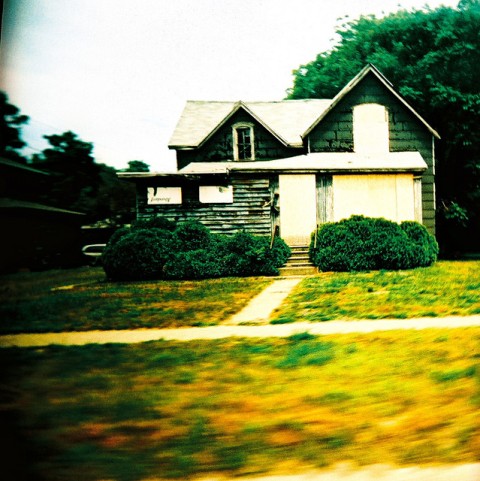The virtues of debt

I stood in the damp grass, on a warm afternoon, eating a veggie dog at the foreclosure-free picnic, with members of Mercy Junction. My husband started a worshiping community in Chattanooga, and they determined that housing issues would be a central part of their ministry. So they gathered in solidarity with a man who was facing foreclosure after losing his job.
One person after another got up to speak. They talked about how they had been laid off or had had health issues. They tried to work with the banks. They filled out endless paperwork. They did everything in their power. The banks made promises. The loans were cut up into tranches, so they had difficulty refinancing. The banks broke their promises. I expected to hear those stories, but what I didn’t expect to hear was the spiritual shaming. Somehow, many feared that God was punishing them. Poverty and sin had been so married in their minds they couldn’t divorce the two.
I felt it too. In my gut. I went into debt when I went to seminary. When I went to my first call, it was as a solo pastor at a rural congregation. I had read Gail Godwin’s Evensong and imagined myself Margaret Bonner, idealizing my call as a country parson. I was frugal and hardworking. Plus I had dedicated my life to God’s work. That was a perfect recipe for making it.
It didn’t take long before I began to look at my budget and realized my loan obligations outweighed my salary. When our car broke down, I was at the end of my rope. We hadn’t yet saved enough money to buy a reliable one and I was afraid that I would have to take out a loan. I was frantic.
I grew up in a prosperity gospel, conservative, Religious Right home, where riches were God’s reward for good behavior. There was a sense that the poor in our country had the same opportunities and chances as our middle class neighbors (a myth that was quickly diminished after I spent time working in Cabrini Green housing projects in Chicago).
I had become Presbyterian (U.S.A.), which was a more educated and elite than the churches in which I was raised. Though my Presbyterian Church didn’t have the baggage of prosperity gospel, I had new shame. The members of my church were part of clubs that I couldn’t join. They expected me to wear clothes that I didn’t own. They didn’t understand that I didn’t go out to eat with them—not because I didn’t want to spend time with them—but because I couldn’t afford it. I had plenty of privilege, but the experience was enough to make me sensitive to the poverty-shaming that we commit.
I’m amazed at how much our good news can get confused with middle-class myths regarding the poor. Dave Ramsey, an evangelical financial expert recently went on a diatribe against “immature,” “doctrinally ignorant people” people (like me) who questioned Ramsey's posting of a list of habits of the rich:
If you are broke or poor in the U.S. or a first-world economy, the only variable in the discussion you can personally control is YOU. You can make better choices and have better results. If you believe that our economy and culture in the U.S. are so broken that making better choices does not produce better results, then you have a problem. At that point your liberal ideology has left the Scriptures and your politics have caused you to become a fatalist.
Sometimes we do the very best that we can and we are still in poverty. (Ben Irwin wrote this great post talking about the habits of the poor.) Sometimes we live godly lives and we are still in debt. Sometimes we work hard and do what God calls us to do and we still can’t make ends meet. We cannot control health expenses or job loss. We cannot control when we get an education and can't get a job upon graduation.
We can no longer confuse capitalism and Christianity, middle-class myths with the gospel. God does not demonstrate love to us through our bottom line. When optimizing our assets becomes our good news, then we have lost our way.
As I stood in that backyard, I heard another story. The man who was facing foreclosure said, “I thought I was a bad person because I wasn’t able to make it. I thought I was totally alone. I thought that God had abandoned me. But I’ve become closer to God in all of this. Because I know that there’s a community who loves and supports me.”
Fatalism comes when we put out worth in the bottom line, instead of the love of God and support of our communities. Could there be some virtue in debt? Jesus said, “Blessed are the poor.” Could it be, that in these moments when the numbers run red, we become aware of our absolute dependence? Do we become more sensitive to the struggles of others? Could we become more aware of our need for faith and learn to find our worth in God?





